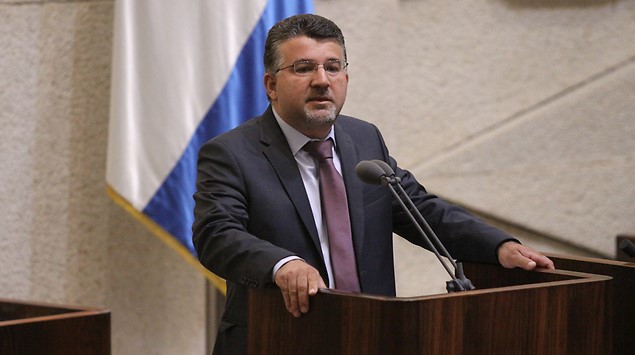The Knesset rejected a bill last week presented by Hadash MK Youssef Jabareen on behalf of the Joint List intended to ensure full equality for all of citizens of Israel, regardless of their ethnicity or religious affiliation. Despite the bill’s highlighting the need for human rights and democracy to be available to all in Israel, a majority of the ruling coalition and Zionist opposition parties predictably rejected it.
In the context of Israel’s recent normalization agreements with the United Arab Emirates (UAE) and Bahrain, Jabareen told the right-wing MKs who attacked the legislation he presented, “What I am proposing to you is first and foremost a peace treaty between the state and its Arab citizens, before addressing what is beyond its borders.” Jabareen continued, “Peace with Arab citizens is realized when the state secures their equal status in their home.”
The text of the bill emphasized that democratic principles should be applied to all citizens in the state: “Israel is a democratic state that guarantees equal rights, based on the principles of human dignity, freedom and equality, in the spirit of the United Nations Universal Declaration of Human Rights” while ensuring “equal and legal protection for all citizens, and fully guarantee[ing] national, cultural, linguistic and religious specificity to both Jews and Arabs.”
The bill stressed that Hebrew and Arabic are the official languages of the state, and both have equal status in all posts and workplaces of the legislative, executive and judicial authorities,” thereby reversing the downgrading of the status of Arabic that came into force with the passage of the 2018 Nation-State Law.
MK Jabareen presented his bill in advance of the 20th anniversary of the ” Events of October 2000″ during which a series of protests in Arab cities and towns in northern and central Israel turned violent. The demonstrations led to clashes with the police and ended in the deaths of 13 Arab protestors, 12 Arab-Palestinian citizens of Israel and one Palestinian resident of the occupied territories.
The Or commission report, which was established to investigate the events of October 2000, found a pattern of governmental “prejudice and neglect” towards the Arab-Palestinian national minority. The commission stated that Israeli establishment insensitivity had allowed widespread discrimination against Arab citizens of Israel leading to the “combustible atmosphere” that led to the riots. The commission was critical of the police’s use of excessive force to quell the protests including the use of sniper fire to disperse crowds. Among the conclusions, the commission said that Israel “must educate its police that the Arab public is not the enemy, and should not be treated as such.”



